

This website uses cookies to improve the user experience. We use cookies in accordance with our NRMA Group Cookie Policy.
This website uses cookies to improve the user experience. We use cookies in accordance with our NRMA Group Cookie Policy.
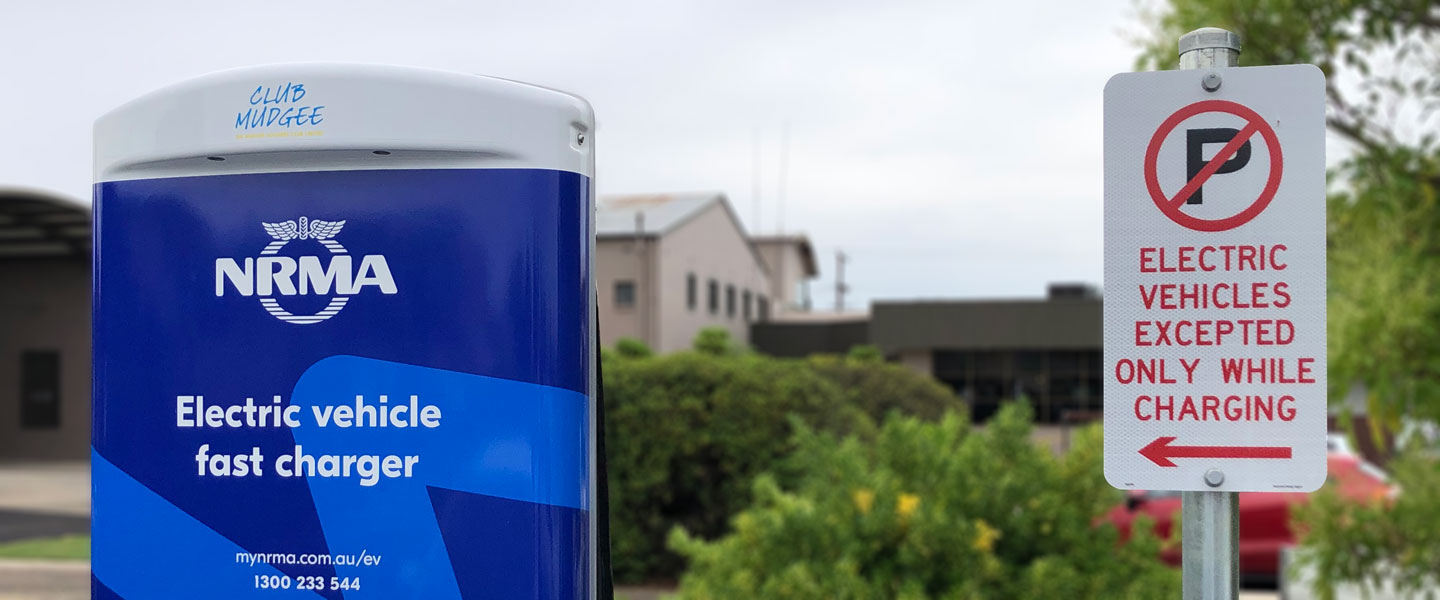
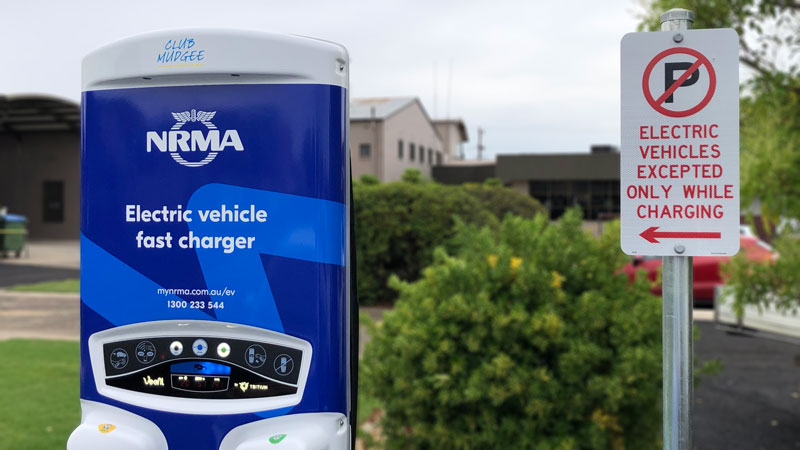
Incidents of internal combustion engine (ICE) vehicles parking in EV charging spots is on the rise across Australia, a phenomenon commonly referred to as "ICEing."
To counteract this trend, states have introduced rules and fines to discourage improper use of EV charging spaces. These regulations target scenarios such as if an EV is parking in a designated EV charging spot but is not plugged in.
However, it is up to owners of private carparks to ask if councils can help reinforce parking rules.
We explain the rules state by state and the differences between public and private EV charging and parking spaces.
Victoria was the first state to enforce fines for ICEing electric vehicle charging and parking spots, with amendments to the road rules effective from December 1, 2020.
Offenders can face fines up to $1153 for (up to six penalty units, with each penalty unit worth $192.31 between 1 July 2023 and 30 June 2024) for stopping in a parking area or a charging space signposted with specific signage for EV spaces.1,2,3
In the Australian Capital Territory, laws introduced in May 2022 impose fines up to $3200 (up to 20 penalty units, with each penalty unit worth $160 from 1 January 2024) for non-EVs stopping in EV parking spaces or any vehicle parking in EV charging bays without plugging in.4,5,6
New South Wales followed suit with legislation introduced in November 2022, penalising “ICEing” with fines up to $2200 (up to 20 penalty units, with each penalty unit worth $110) for stopping in an EV charging area if not plugged in, or parking an ICE vehicle in an EV space.7,8
Examples of EV parking signs as per NSW legislation:
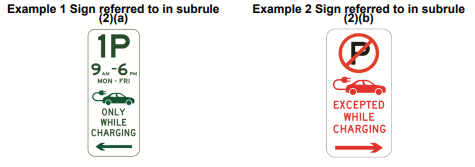
Queensland has also implemented fines to promote electric mobility and respect for EV charging infrastructure.
Under its rules, drivers may face fines up to $3096 (up to 20 penalty units, with each penalty unit worth $154.80) for parking in an EV charging spot unless they are an EV that is plugged in, or has just been unplugged. Unlike other states above, there is no penalty for parking in an EV space that is not dedicated to charging. 9,10,11
In South Australia, rules regarding stopping in EV charging and parking areas will be effective from March 30, 2024, outlining changes in road traffic rules and symbols for electric-powered vehicles in the state.
The new rules designate parking and charging spaces using specific symbols and markings for electric vehicles and introduce fines far below that of other states: $75 for parking in an EV parking space, and $111 for vehicles parking in designated electric vehicle areas and not plugging in when required.12,13,14
Tasmania in 2022 introduced similar rules for non-electric vehicles parking in EV spaces, or EV charging spaces. Under the rules, drivers can be fined $195 for either offence, and owners of bicycles can be fined $97 (where one penalty unit equals $195 from 1 July 2023 to 30 June 2024.)15,16
In the Northern Territory, drivers may receive a fine for parking a non-electric-powered vehicle in a parking area or EV charging space with an appropriate sign but it has not specified the fine (one penalty unit in the NT equals $176 from 1 July 2023 to 30 June 2024.)17
Western Australia is yet to announce public fines specifically targeting ICEing, though local regulations and enforcement practices regarding parking violations may apply in some areas.
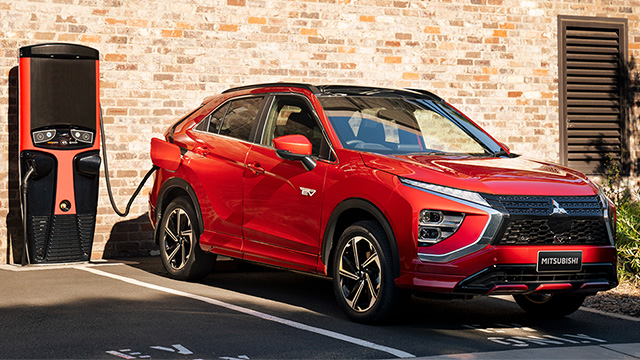
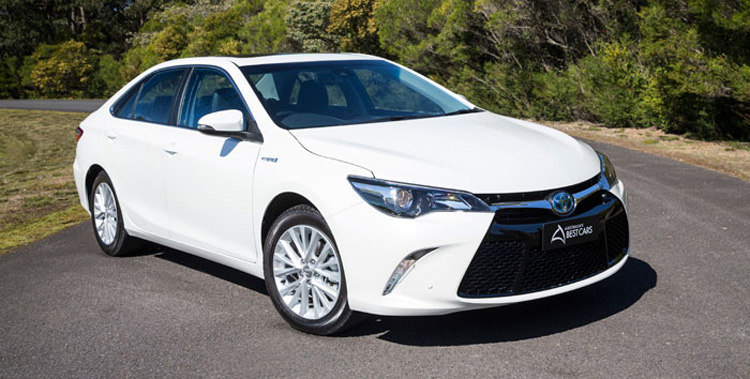
According to Revenue NSW’s penalty notice dashboard, from January 2023 to February 2024, more than $51,000 worth of fines have been issued.
Of these, the majority (around $27,000) are for non-electric vehicles stopping in an EV parking area, and $24,000 are for non-electric vehicles stopping in an EV charging area.
The majority of these fines have been handed out in the past six months.
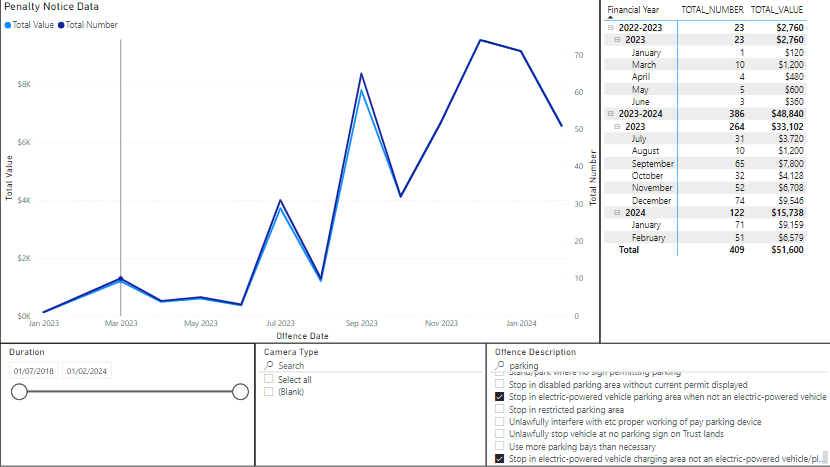
In private carparks, the provision of electric vehicle charging spaces is a courtesy, such as with “parents with prams” spaces.
Enforcing penalties for parking in specially-marked spaces in private carparks such as those found in strata and shopping centres from a legal perspective hinges on contractual agreements rather than legislated fines.
Private operators lack legal authority to issue fines like government bodies. They usually demand "liquidated damages" for violating a carpark’s terms of use, like parking in an unauthorised spot.
Parking spaces in strata carparks can attract a penalty of up to $1100 if by-laws are breached, enforceable by the NSW Civil and Administrative Tribunal.18
But legal precedents suggest that the enforcing such demands can be difficult. For instance, a tribunal finding in Victoria determined that a claim of "liquidated damages" by a private car park operator was deemed a penalty and are therefore unenforceable.19,20
Moreover, recent legislative changes have further protected motorists by restricting the ability of private carpark operators to access vehicle owner details from the Roads and Maritime Services (RMS) for the purpose of recovering car park fees, making it even more challenging for these operators to pursue claims against individuals who breach parking terms in private carparks.21,22
However, it is possible for managers of private carparks to have local councils issue parking fines. For example, in Waverley Council, rangers “regularly patrol residential and commercial areas to ensure vehicles are parked in accordance with the relevant road rules and parking restrictions.”23
Ultimately though, asking people to keep EV charging spaces clear should be a matter of common sense and courtesy. It is the same as an electric vehicle parking next to a bowser at a service station. Blocking an EV charging spot causes inconvenience to fellow drivers who need to recharge, potentially for a longer period of time than refuelling a traditional vehicle at a service station.